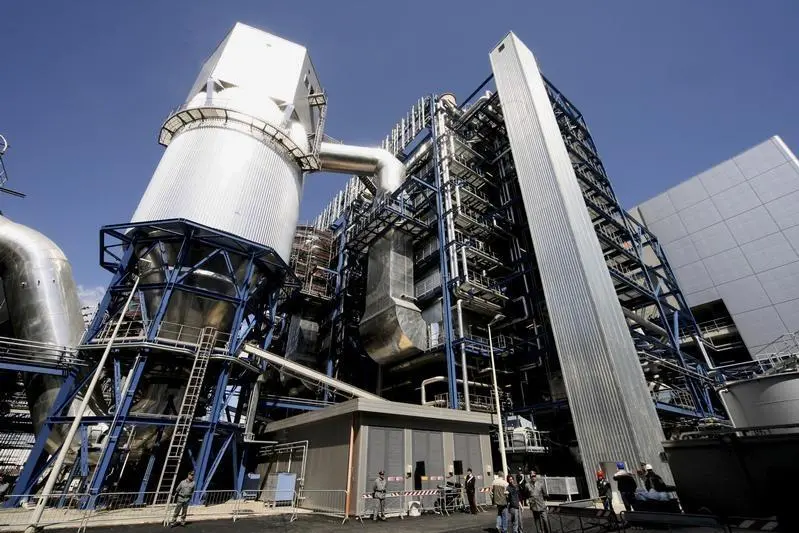PHOTO
Masdar, one of the world’s leading renewable energy companies, and Tribe Infrastructure Group, an infrastructure advisory and development firm, have signed an agreement to establish a joint venture in Australia that will strengthen their collaboration in the deployment of utility-scale energy-from-waste (EfW) projects.
Each year approximately 27 million tonnes of waste is landfilled in Australia, the equivalent of filling 75 Olympic swimming pools, yet there are currently no utility-scale energy from waste plants operating in the country.
Australia represents an attractive market for investment in the EfW as part of a widespread push to help decarbonize the Australian economy.
In January, Masdar and Tribe announced that they had acquired a 40 percent stake in the East Rockingham Waste to Energy project in Perth, Western Australia.
The aim of the JV company is to develop EfW projects across Australia, as well as to support the delivery and management of these projects, remarked Christopher Pyne, Former Australian Defence Minister, in the presence of Abdullah Al Subousi, UAE Ambassador to Australia, alongside Mohamed Jameel Al Ramahi, Chief Executive Officer of Masdar, and Peter McCreanor, Tribe CEO, during the inauguration of the Australia-UAE Business Council, which took place in Sydney, Australia.
"Tribe and Masdar have the distinction of being the first companies to ink contracts that actively engage in business activity in Australia as part of the business council. Both the countries have very strong connections, and the joint venture agreement for turning waste into energy is only the beginning of the relationship that the two companies will have across Australia," said Hon Pyne.
On the deal, Al Subousi said: "This is an exciting day for both the UAE and Australia. I have no doubt that the Council will do a great job in enhancing our bilateral relations."
"Masdar has been a great champion of the energy-from-waste sector. We are honored to see Masdar and Tribe come together to establish a joint venture company and I hope this can pave the way for future collaboration in additional sectors," he added.
"The Australian energy-from-waste sector provides excellent potential in the long-term. The signing of this agreement is a reflection of Masdar’s global clean energy ambitions and will further support Australia’s roadmap towards a low-carbon future," said Al Ramahi.
"We are pleased to be strengthening our partnership with Tribe and we look forward to leveraging our local and international experience and world-leading expertise to advance the energy from waste sector in Australia, following our entry into the market earlier this year," he added.
McCreanor said Tribe was delighted to announce its long-term partnership with Masdar and look forward to delivering world-class clean energy infrastructure projects for the communities in which we operate.
Energy from waste is safe, reliable and affordable and we’re pleased to be at the forefront of bringing this technology to Australia. We look forward to delivering sustainable waste management solutions that provide superior environmental outcomes and make sound economic sense."
Construction on the A$511 million greenfield facility, which is located in the Rockingham Industry Zone, 40 kilometres south of Perth, is ongoing and the plant is expected to be operational in late 2022.
When completed, East Rockingham WTE will process 300,000 tonnes per year of non-recyclable residual municipal, commercial and industrial waste and up to 30,000 tonnes of biosolids per year.
The facility will also recover approximately 70,000 TPA of bottom ash, which will be processed for use in roadbase and other construction materials. The facility will generate 29 megawatts (MW) of baseload renewable energy, enough to power more than 36,000 homes, and displace more than 300,000 tonnes of CO2 emissions per year.
In October 2020, Opal Australian Paper and SUEZ Australia and New Zealand announced that Masdar and Tribe have joined them as additional equity partners for the development of the Maryvale EfW facility in Victoria.
The Maryvale EfW project will divert approximately 325,000 tonnes of non-recyclable residual waste from landfill and reuse it to generate steam and electricity to replace natural gas and coal fired electricity. The project is aligned with Victoria’s circular economy policy and is expected to deliver significant reductions in greenhouse gas emissions.
Copyright 2020 Al Hilal Publishing and Marketing Group Provided by SyndiGate Media Inc. (Syndigate.info).
Disclaimer: The content of this article is syndicated or provided to this website from an external third party provider. We are not responsible for, and do not control, such external websites, entities, applications or media publishers. The body of the text is provided on an “as is” and “as available” basis and has not been edited in any way. Neither we nor our affiliates guarantee the accuracy of or endorse the views or opinions expressed in this article. Read our full disclaimer policy here.





















